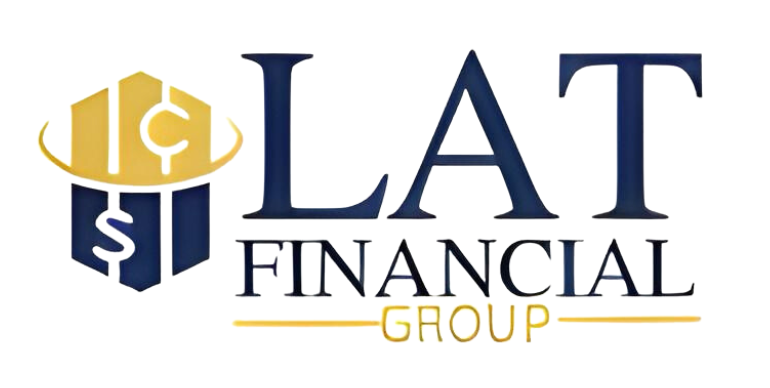IN THIS ISSUE
DID YOU KNOW?
- The Critical Role of Record-Keeping
- Understanding Deductible Expenses
- Employment Tax Obligations
- Sole Proprietorship Tax Requirements
- Quarterly Estimated Tax Payments
- LLC Tax Considerations
- Corporate Tax Obligations
- The Strategic Value of Professional Guidance
- Looking Toward the Future
Small Business Tax Filing: A Comprehensive Guide for Entrepreneurs
by Audrey Jackson
Did You Know?
Understanding the intricacies of tax filing stands as one of the most crucial responsibilities for small business owners. Beyond merely fulfilling a legal obligation, proper tax management can significantly impact a business’s financial health and long-term success. This comprehensive examination explores the essential aspects of tax filing that every small business owner should understand.
The Fundamentals of Business Tax Structure
The foundation of effective tax management begins with understanding your business structure. Different organizational forms—sole proprietorships, LLCs, S corporations, and C corporations—each carry distinct tax implications that fundamentally affect how you report income and expenses. This choice influences everything from self-employment tax obligations to available deductions and the complexity of your filing requirements.
Sole proprietors, representing the simplest business structure, report their business income and expenses on Schedule C of their personal tax returns. This straightforward approach, while administratively simple, often results in higher self-employment tax exposure. Limited Liability Companies (LLCs) offer more flexibility, allowing owners to choose how they want to be taxed—either as sole proprietors, partnerships, or corporations, depending on their specific circumstances and goals.

The Critical Role of Record-Keeping
Successful tax management depends heavily on maintaining precise and organized financial records throughout the year. This goes beyond simply collecting receipts; it requires implementing systematic approaches to tracking income, expenses, assets, and liabilities. Modern accounting software has revolutionized this process, offering real-time financial visibility and simplified tax preparation.
Business owners must maintain detailed records of all income sources, including cash transactions, credit card payments, and digital transfers. Equally important is the documentation of expenses, from routine operational costs to major capital investments. These records serve dual purposes: they support tax deductions and provide crucial evidence in case of an audit.
Understanding Deductible Expenses
The landscape of business deductions represents both an opportunity and a challenge for small business owners. While the tax code offers numerous deductions that can significantly reduce tax liability, identifying and properly documenting these deductions requires careful attention and understanding.
Common deductible expenses include operational costs like rent, utilities, and supplies, as well as marketing expenses, professional services, and employee-related costs. The home office deduction, particularly relevant for many small business owners, requires meeting specific criteria for exclusive business use of the space. Vehicle expenses, whether claimed through actual costs or standard mileage rates, must be supported by detailed logs and documentation.
Employment Tax Obligations
Managing employment taxes presents another crucial aspect of small business tax compliance. Whether you have employees or operate independently, understanding your employment tax obligations is essential. This includes properly classifying workers as employees or independent contractors, a distinction that carries significant tax implications.
For businesses with employees, responsibilities include withholding and remitting payroll taxes, filing quarterly employment tax returns, and providing annual W-2 forms. Those working with independent contractors must track payments and issue 1099 forms when required thresholds are met. Understanding these obligations helps avoid costly penalties and ensures compliance with tax regulations.
Sole Proprietorship Tax Requirements
For sole proprietors, tax filing integrates with personal returns through Schedule C. This arrangement, while straightforward, demands careful attention to self-employment tax obligations and quarterly estimated payments. Sole proprietors must track all business income and expenses meticulously, as these directly impact their personal tax liability.
Quarterly Estimated Tax Payments
Most small business owners must make quarterly estimated tax payments, a system that requires careful planning and cash flow management. These payments, based on projected annual income, help avoid large tax bills and potential penalties at year-end. Successful management of estimated taxes requires accurate income projection and understanding of tax obligations throughout the year.
LLC Tax Considerations
Limited Liability Companies enjoy flexibility in their tax treatment, allowing owners to choose between being taxed as sole proprietors, partnerships, or corporations. This versatility requires careful consideration of the tax implications for each option and how they align with business goals.
Corporate Tax Obligations
For businesses operating as corporations, whether S or C corporations, tax obligations become more complex. S corporations maintain pass-through taxation while requiring reasonable compensation for owner-employees. C corporations face potential double taxation but may benefit from certain corporate tax advantages.
The Strategic Value of Professional Guidance
While many small business owners handle routine bookkeeping independently, professional tax guidance often proves invaluable. Tax professionals bring expertise in complex areas of tax law and can identify opportunities for tax savings while ensuring compliance. Their knowledge becomes particularly valuable during significant business changes, such as expansion, acquisition, or succession planning.
Looking Toward the Future
Tax planning extends beyond annual filing requirements to encompass long-term business strategy. Forward-thinking business owners recognize the importance of understanding how current decisions affect future tax obligations. This might include timing major purchases, structuring business relationships, or planning for eventual business succession.
Successful tax management requires staying informed about changing tax laws and regulations. Tax reform can significantly impact small businesses, making ongoing education and professional development crucial for business owners and their advisors.
Conclusion
Effective tax management represents a cornerstone of successful small business operation. While the complexities of tax law and filing requirements may seem daunting, approaching them systematically and maintaining organized records throughout the year can significantly reduce stress and potential problems. Understanding your business structure, maintaining proper documentation, and seeking professional guidance when needed helps ensure both compliance and optimization of your tax position.
Remember that tax management is not merely an annual event but an ongoing process that requires regular attention and adjustment. By staying informed, maintaining organized records, and planning strategically, small business owners can navigate tax obligations successfully while focusing on their core business operations and growth objectives.

